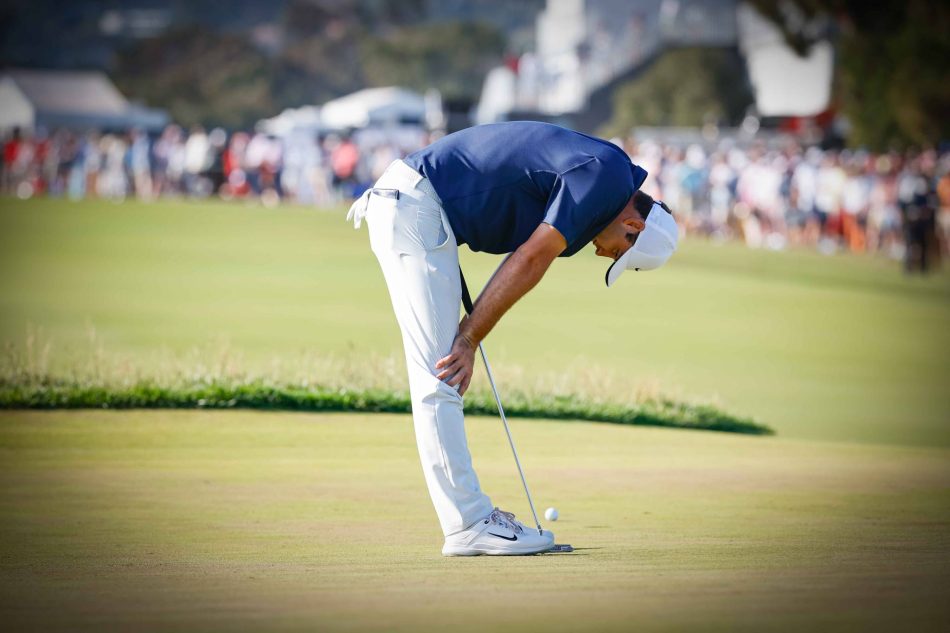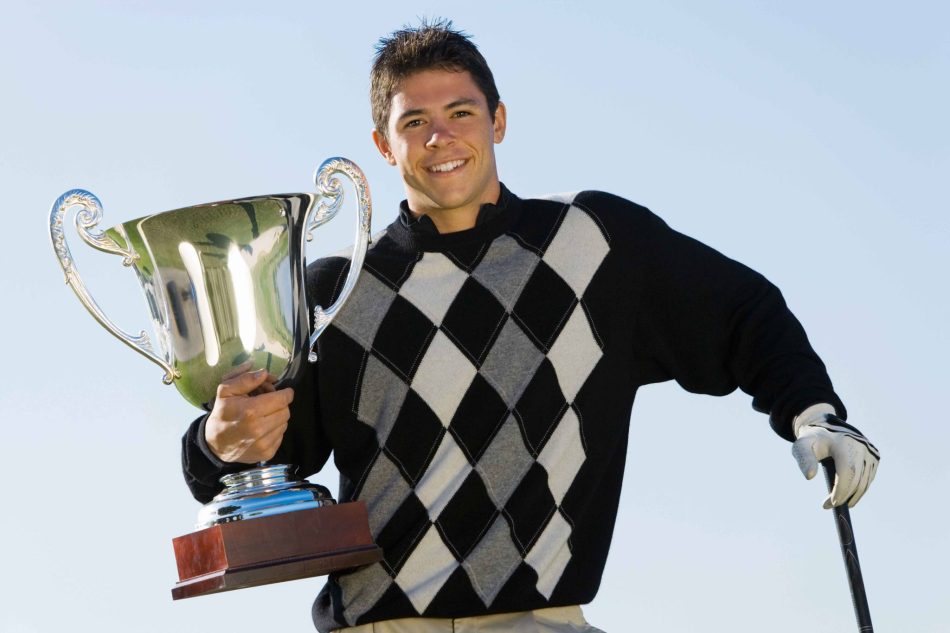Drive Away Hunger Golf Classic 2025
Join Community Table on August 25 at Fossil Trace Golf Club

By Jim Bebbington
Wyndham Clark. Max Homa. Scottie Scheffler. The best golfers in the world have teams of people helping them: swing coaches, caddies who are often golf craftsmen themselves, nutritionists and – very visibly these days – sports psychologists.
This season of the Netflix documentary Full Swing documents the 2023 PGA Tour season and details how ingrained sports psychology is with the top players.
But how about the regular schmo – and schmoette; could we play better with the help of a sports psychologist? Jon Baylor, co-founder of the online and in-person GolfPsych program, said the question alone reveals a common bias.
“The common thinking is ‘when my swing is good enough, I’ll worry about my mental game’,” he said. “And the sports industry supports this: Keep working on it and you’re going to get better over time. Let’s work on your takeaway for a while. Hit the same shot, same club, going over and over and over, constantly thinking about the swing key. And that’s where they leave you.”
The 15-handicapper, Baylor said, is exactly the kind of person who can benefit from golf psychology guidance.
He runs GolfPsych near San Antonio with his wife, sports psychologist Deborah Graham. Their program trains local teaching professionals to use their online screening tools to help their students understand both the mental and physical aspects of their golf game. Two Colorado pros who have been trained on the system include Stan Sayers, a PGA teaching professional working out of Colorado Golf Club in Parker, and Ed Oldham, at The Ranch in Westminster.
All golfers deal with similar issues: How can I deal better with stressful situations on the course? How do I deal with negative thoughts? Do I relax, or do I focus? What if it’s both? How do I win?
“In 2019 I caddied for a friend in Japan and Korea,” said Stan Sayers. “In Korea we had led for three days and were in the final group. He had been in the finals before and had lost. You can’t believe how much he’d change. He would have won $100,000 for that event. But (in the final round) he got mad at me on something that was pretty small and he just was a different person. He finally – a couple of years later – he learned how to win.”
Many sports psychologists work with players using imagery, goal-setting and other methods to seek on-course improvement. Some may be certified sports psychologists. In addition, clinical sports psychologists are certified to help patients address not just the game challenges but underlying issues like depression or burnout, particular threats to younger players.
Sayers said many of his clients will talk about ‘being mental.’ They are resigned to having a somewhat chaotic mental relationship with the game of golf. It doesn’t have to be that way, he tells them. “You’re not ‘just mental’,” he counsels. “What you need to understand is that you have certain beliefs or you have things that are causing you stress.”
The most common symptom? When the typical amateur player says they can hit a certain shot well on the range, but not on the course.
“There are times when that absolutely can happen,” Sayers said.
Sayers advises his students that it won’t be quick or easy to build the experience and confidence for real improvement in their games, but it can be accomplished with time. “I’ll get ‘I took a lesson yesterday and I can’t do it’,” he said. “Of course, you can’t do it. It takes eight weeks to learn. But you CAN do it.”
Women golfers often face a different challenge, he said. He has seen many take to practicing a new skill until their hands bleed. “They will over-practice sometimes,” he said.
And in some cases, the issues golfers are dealing with may go much deeper than poor golf performance. Lisa Lollar is a Denver-based sports psychologist who works with athletes across several sports, including golf. “Any golfer that is older than 12 could benefit from learning basic psychological skills to improve their game; weekend warriors, elite, pro,” she said.

But beyond the basic skills of focus and handling negative thoughts, some players are dealing with much deeper concerns and a trained psychologist can help identify those and work with them on it, Lollar said. Lollar works with both – athletes and players simply seeking better performance, as well as players with deeper issues to discuss.
The Association of Applied Sports Psychology, a national accreditation organization based in Indianapolis, has accredited 33 Colorado counselors as certified mental performance consultants. Those counselors have master’s or doctorate degrees in fields related to sports science or psychology and have been mentored for at least 400 hours of work with clients, competitive sports populations and mentorship.
“I know it’s in all sports, but in golf, there’s nobody else to rely on,” Sayers said. “Your mistakes are your mistakes. Nobody threw you the wrong inbound pass. It’s your job against the golf course today.”
HOW TO CHOOSE A SPORTS PSYCHOLOGIST
The American Psychological Association gives these tips for anyone seeking any kind of psychologist
1. Ask Around: Ask your medical doctor. Call the psychology department at any local university. Ask friends and faith leaders. Call your local or state psychological association.
2. “The Right Match is Important” – Find someone you are comfortable with and someone who makes you feel at ease discussing your concerns or issues.
3. Ask if they are Licensed, how long have they practiced, what experience have they had working with clients like you, what types of treatments they use, and what they charge.
4. Check with Accreditation organizations like the American Psychological Association (apa.org) and the Association for Applied Sport Psychology (appliedsportpsych.org)
Colorado AvidGolfer Magazine is the state’s leading resource for golf and the lifestyle that surrounds it, publishing eight issues annually and proudly delivering daily content via coloradoavidgolfer.com.
Join Community Table on August 25 at Fossil Trace Golf Club
Steamboat Springs is like a secret only you and your friends know
Vail Valley is home to an endless array of summer outdoor pursuits